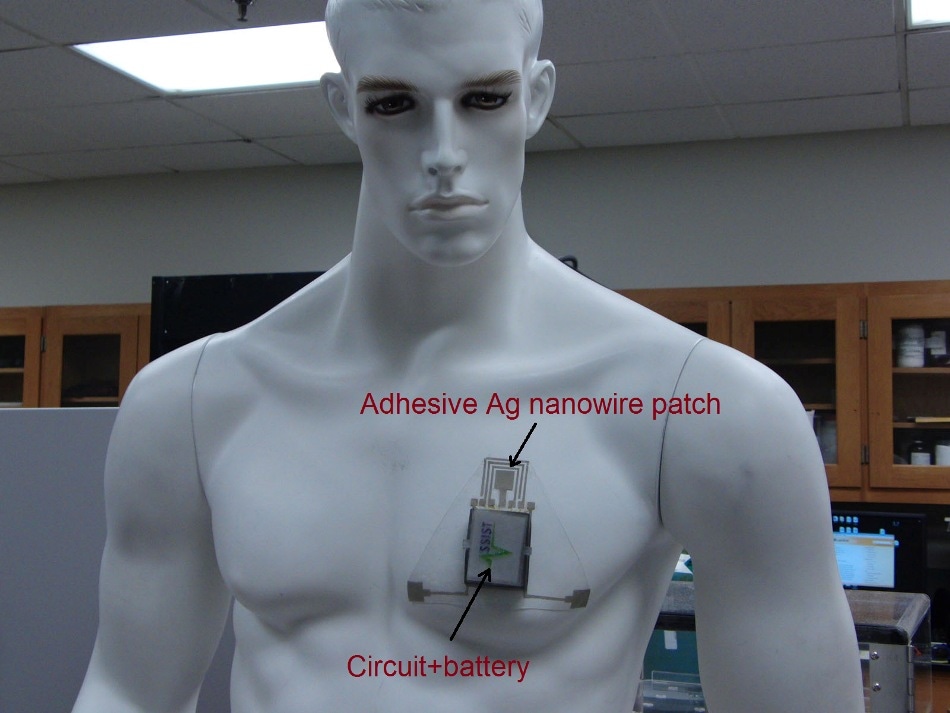Jan 31 2017
 The new sensor, which tracks an individual�s skin hydration in real time, can be incorporated into a wearable patch. Photo credit: Shanshan Yao.
The new sensor, which tracks an individual�s skin hydration in real time, can be incorporated into a wearable patch. Photo credit: Shanshan Yao.
A wearable, wireless sensor that can track an individual’s skin hydration has been developed by scientists from North Carolina State University. This device has been developed for use in applications that need to diagnose dehydration before it causes a health problem. It is flexible, lightweight and stretchable and has already been integrated into prototype systems that can be worn on the wrist or as a chest patch.
“It’s difficult to measure a person’s hydration quantitatively, which is relevant for everyone from military personnel to athletes to firefighters, who are at risk of health problems related to heat stress when training or in the field,” says John Muth, a professor of electrical and computer engineering at NC State and co-corresponding author of a paper describing the work.
We have developed technology that allows us to track an individual’s skin hydration in real time. Our sensor could be used to protect the health of people working in hot conditions, improve athletic performance and safety, and to track hydration in older adults or in medical patients suffering from various conditions. It can even be used to tell how effective skin moisturizers are for cosmetics.
Yong Zhu, Associate Professor, NC State
The new sensor contains two electrodes composed of an elastic polymer composite that includes conductive silver nanowires. These electrodes track the skin’s electrical properties. Since the electric properties of the skin change in a predictable way based on a person’s hydration, the readings taken from the electrodes can tell how the skin is hydrated.
Using customized artificial skins together with a wide range of hydration levels in lab testing, the scientists discovered that the wearable sensor’s performance was not influenced by ambient humidity. This wearable sensor was just as accurate as a large, expensive, commercially provided hydration monitor that works on same principles, but utilizes rigid wand-like probes.
The scientists also integrated the sensors into two different wearable systems – an adhesive patch that can be worn on the chest and a wristwatch. Both the patch and the watch wirelessly transmit sensor data to a program that runs on a smartphone, tablet or laptop. This means that the data can be easily monitored by the user or by a selected third party such as an officer in a military setting, or a doctor in a hospital setting.
What’s more, the sensor is comparatively inexpensive.
The commercially available monitor we tested our system against costs more than $8,000. Our sensor costs about one dollar, and the overall manufacturing cost of the wearable systems we developed would be no more than a common wearable device, such as a Fitbit.
Shanshan Yao, Ph.D. Student, NC State
The paper, “A Wearable Hydration Monitor with Conformal Nanowire Electrodes,” is published in the Advanced Healthcare Materials journal. The paper was co-authored by Amanda Myers and Abhishek Malhotra, Ph.D. students at NC State; Feiyan Lin, a former graduate student at NC State; and Alper Bozkurt, an associate professor of electrical and computer engineering at NC State.
The work was supported by the National Science Foundation through the ASSIST Engineering Research Center, which is based at NC State, under grant number EEC-1160483.